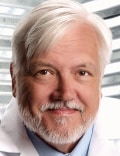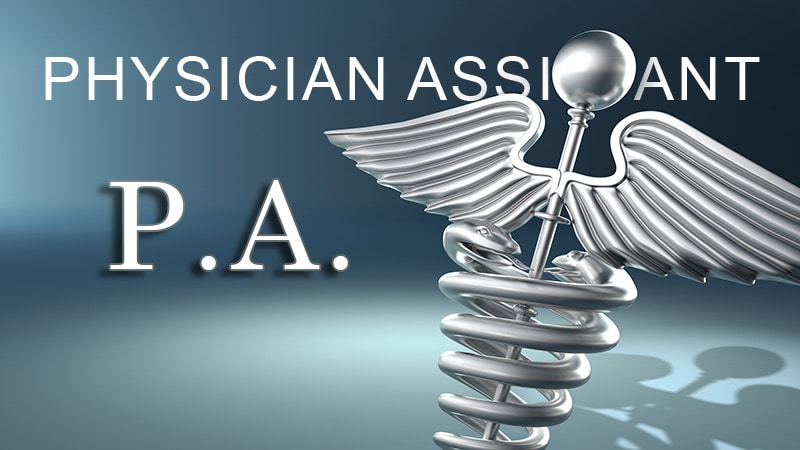
Randy D. Danielsen, PhD, PA-C Emeritus
After much debate and discussion, in May the American Academy of Physician Assistants (AAPA) House of Delegates passed a resolution affirming “physician associate” as the official title of the PA profession, by a majority vote of 198 to 68. This discussion is not new; in fact, changing the title “physician assistant” has been debated for well over two decades. But this is the first time the profession has taken the idea seriously.
The underlying premise of the change is to remove the archaic term “assistant” from the title and eliminate the misconception that PAs simply assist physicians. In fact, they diagnose, treat, and care for patients at a high level.
Title change implementation, of course, is a rather complex undertaking for the profession. It will involve many stakeholders, not the least of which are the Physician Assistant Education Association, the National Commission on Certification of Physician Assistants, and the Accreditation Review Commission on Education for the Physician Assistant. Because this will take many years to complete, the AAPA has asked PAs to refrain from calling themselves “physician associates” until all of the legislative and regulatory changes are made years down the road. AAPA has already started this process by updating its articles of incorporation, changing its corporate name to the American Academy of Physician Associates. They are also working with federal agencies to begin the title change at that level and rely on state constituent chapters to start working with their legislatures.
The question is: What do the profession’s rank-and-file members think about this change? The discussion over the past 2 years has polarized the profession, and opinions abound. Most interviewed for this story favor the change.
In Favor of Clearer Identity
Having been a Texas emergency medicine PA in the industry for 11 years, Mike Sharma notes that “the business and practice of medicine in America has changed in the past 50 years. The term associate is more appropriate for how PAs practice in 2021. It does not change how PAs are working; rather, it better describes what we are already doing.”
Nobody wants to be called an assistant. Being an associate of a physician would carry more weight and give more stature to the position.
W. Richard Bukata, MD, a longtime emergency medicine physician in California and the medical director for the Center for Medical Education, Inc., has been a proponent of the PA name change. “At least 5 years ago, if not longer, I began wondering to myself why PAs wanted to be called ‘assistants.’ Nobody wants to be called an assistant. Being an associate of a physician would carry more weight and give more stature to the position. I think the concern raised by many that the term ‘associate’ would confuse patients is overblown. Every time a PA meets a new patient, they should present a professional business card to avoid misunderstandings about who is who. PAs have an obligation to indicate to the patients that they are not physicians.”
Kris Pyles-Sweet, DMSc, PA-C, an internal medicine PA in North Carolina and president of PAs for Tomorrow, has been in the profession for 22 years. She said she approved of the title changes because “changing to a whole new title would start the PA profession from the beginning for recognition, cost, and branding.”
In addition, Pyles-Sweet says, “PAs are trained in the medical model, and sometimes with students in traditional physician medical school. …Continuing with ‘physician’ in the title makes sense.” Lastly, she said that using the term “physician” lets the public and administrators know what PAs are trained to do. “Any other title contributes to and increases PAs’ lack of identity.”
A Broader Perspective
Laura Gunder-McClary, DHSc, PA-C, a Georgia PA for over 18 years, an educator, and an accreditation consultant, offers a larger view of name changes. As a former medical technologist, she recalls her professional association’s name change to “clinical laboratory scientist.”
“There was a lack of understanding among the public as well as other healthcare professionals of who they [medical technologists] were, the nature of their work, and the critical influence laboratory data has on diagnosis and treatment. The similar-sounding labels of ‘medical technician’ and ‘medical technologist,’ and the overlap between their acronyms, were yet another reason for the migration to a more descriptive title. This change has worked for them and will work for the PA profession for the same reasons.”
Michael Doll is a former member of the AAPA board and has been a PA in Pennsylvania for 33 years. He pointed to the trend in the corporate community. “Many companies have changed their names. Examples [are]: Esso to Exxon, Weight Watchers to WW, Dunkin’ Donuts to Dunkin’, to name a few. Those companies continued to thrive. The PA profession should not be fearful of changing its title.”
Myles Whitfield, a psychiatric PA in Tucson, Arizona, in the field for 31 years, supports the name change but doesn’t think it’s enough. “I preferred the ‘medical care practitioner’ title, as it equated a bit more with our nurse practitioner colleagues.”
Herb Macey, now a retired PA after 44 years in practice, wasn’t initially convinced the name change was needed. “When I first heard of the desire to have a name change and the many options that were offered, I felt somewhat dubious about the change. However, I am now supportive of a name change. I have spent my entire career in underprivileged or rural communities practicing as a PA. At one point, I worked with a physician who referred to me as his associate, and I could see the acceptance and understanding that it reflected in my role. I believe that the patients were left with a greater understanding of my place in the medical community using the word ‘associate.'”
Hank Lemke is an educator in the PA profession he’s practiced for over 32 years. Currently in Arkansas, he said he didn’t have an opportunity to vote “aye” or “nay” when the profession’s leadership ratified its decision earlier in the year. But after reading up on the decision, he now approves of it.
“Looking back now, I think that kind of work did not qualify me as ‘assistant.’ In fact, as I gained more experience, like most of us did, we moved from being ‘an assistant’ to ‘co-worker,’ ‘colleague,’ and even for some to ‘consultant.’ I think these titles all should qualify us as associates.”
Discussing the task ahead, he said, “It will be difficult. Like others in the region, I think it will take many years if it ever legally changes at all. Of course, our biggest supporters and vocal nonsupporters are the same ones we now call ‘co-worker,’ ‘colleague,’ and even ‘consultant’ today. I do not think state statutes are the first hurdle we have to overcome.”
Difference of Opinion
There are also PAs who feel this was a wrong move. Mike Goodwin, an occupational medicine PA in Arizona who has been in the industry for 48 years, offered his perspective. “This is a waste of time and money; both could be spent better.” Lee Dockins, another Arizona PA working in urgent care with 21 years of experience in the field, is adamantly against the term “physician associate.” He said it “is just another demeaning name that does not adequately relate our true role in reality as independent providers. I now feel like a Walmart employee.”
Citing the financial cost of the effort, Bert Simon, DHSc, a PA educator in Pennsylvania who has been in the profession for 42 years, questions the overall value of the venture. He further characterizes the name change as a “distinction without a difference” and thinks the industry should just stick with the moniker of PA.
Joe Weber, DHSc, a PA educator in South Carolina in the field for 12 years, shares that view. “Honestly, as a friend of mine would say: I am not sure the juice is worth the squeeze. Tremendous energy, time, and money have been spent on a name change, and we are only at the beginning of the massive expenditures to change the name. Our PA program will spend many thousands of dollars on rebranding everything from stationery, websites, logos on all of our scrubs, clothing, coffee mugs, et cetera.”
Unintended Monetary Consequences
Alison C. Essary, DHSc, MHPE PA-C, is a director and clinical professor in Arizona who has been in academics for 20 years. She points to some unintended consequences of the name change. “This resolution, presented at the AAPA conference in 2021, failed to incorporate the breadth and depth of research on the PA profession. This body of research clearly supports the value, safety, and access provided by PAs. The resolution does not address the purported concerns around training or clarify significant differences between professions.”
Essary points to other complications. “One of the most significant challenges in increasing access to care in the United States includes licensure and regulatory barriers.” She said the resolution may result in additional costs, including legal and staff fees associated with PA student clinical agreements, PA program recruitment, marketing materials, and other items that may ultimately be absorbed by student tuition.
For PAs in clinical practice, modifications in PA contracts for hospital privileges and credentialing may be required, Essary said. “These costs may be prohibitive for some students, programs, practices, and/or health systems — particularly in the midst of COVID-19.”
Randy D. Danielsen, PhD, PA-C, is a former Air Force corpsman, retiring as a lieutenant colonel after 28 years. He earned a Masters in PA Studies (MPAS) from the University of Nebraska with an emphasis in internal medicine in 1997 and his Doctor of Philosophy from the Union Institute & University in 2003. Throughout his career, he has been a clinician, PA educator, author, and editor.
Follow Medscape on Facebook, Twitter, Instagram, and YouTube

